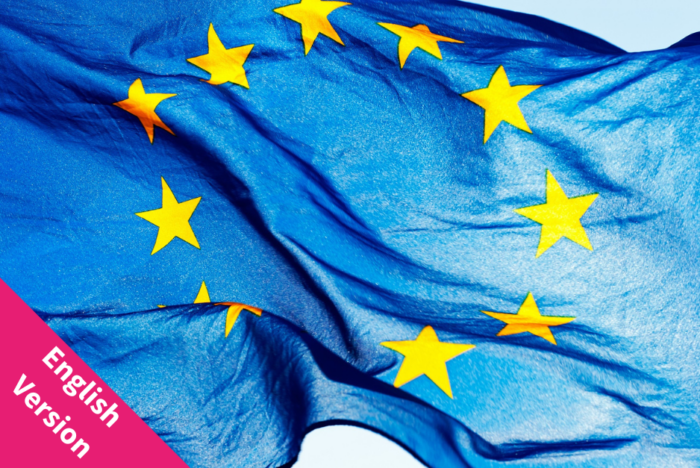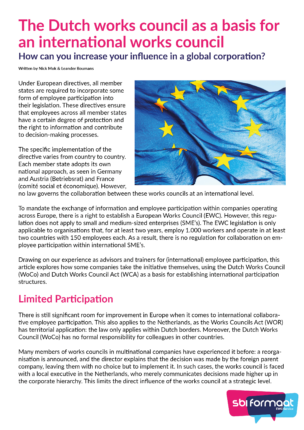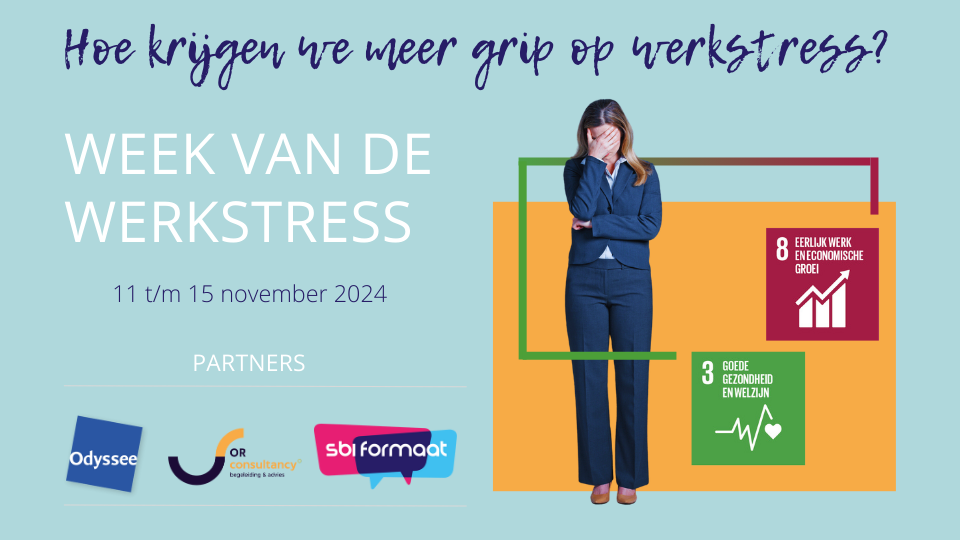The Dutch WoCo as a basis for an international WoCo

Under European directives, all member states are required to incorporate some form of employee participation into their legislation. These directives ensure that employees across all member states have a certain degree of protection and the right to information and contribute to decision-making processes.
The specific implementation of the directive varies from country to country. Each member state adopts its own national approach, as seen in Germany and Austria (Betriebsrat) and France (comité social et économique). However, no law governs the collaboration between these works councils at an international level.
To mandate the exchange of information and employee participation within companies operating across Europe, there is a right to establish a European Works Council (EWC). However, this regulation does not apply to small and medium-sized enterprises (SME’s). The EWC legislation is only applicable to organisations that, for at least two years, employ 1.000 workers in the EEA and operate in at least two EEA countries with 150 employees each. As a result, there is no regulation for collaboration on employee participation within international SME’s.
Do you want to work with an international works council? Contact our EOR-service for advice!
Employee participation without borders
In addition to the existing European Works Councils (EWC), we are increasingly seeing the emergence of International Works Councils (IWC). The EWC is intended for companies with more than 1,000 employees in the EEA, distributed across at least two EEA countries with a minimum of 150 employees in each. The EWC operates via a tiered election system, with members elected from their respective national employee participation bodies (works councils/trade unions). This structure provides opportunities for collaboration among works councils that meet these criteria. Furthermore, for transnational matters, the EWC has the right to information and consultation, similar to the Dutch right to advise.
The second form, International Works Council (IWC), is becoming more common. Companies that establish IWC’s are often service-oriented and resemble SME organisations, employing between 50 and 400 employees, many of whom are highly educated and digitally skilled. These councils vary in structure but generally adhere to the Dutch Works Councils Act (WCA), with modifications to their regulations concerning eligibility for election. This allows not only employees working in the Netherlands but also those in foreign sister companies to be eligible for election. Alternative approaches include creating an electoral group, setting up a committee with foreign employees, or entering into a company agreement (ondernemingsovereenkomst) under Article 32 of the WCA.
How can you increase your influence in a global corporation?
Drawing on our experience as advisors and trainers for (international) employee participation, this article explores how some companies take the initiative themselves, using the Dutch Works Council (WoCo) and Dutch Works Council Act (WCA) as a basis for establishing international participation structures.
This article is published in the magazine and on the website of ORnet, as well as our own website:
Written by Nick Mok and Leander Boumans, trainers/advisors EOR-Service .
.






